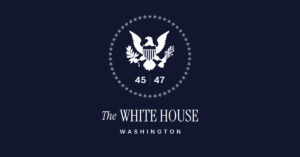The S&P 500 hit a record high today as investors eagerly await developments on trade negotiations and the federal budget bill. Meanwhile, Microsoft has announced another significant round of layoffs, Tesla’s stock is on the rise, and Bitcoin is nearing an unprecedented $110,000.
Microsoft to Lay Off Thousands as Part of Strategic Restructuring
Microsoft Corporation (MSFT) confirmed plans to reduce its global workforce by nearly 4%, affecting approximately 9,000 employees. This decision primarily impacts sales teams, according to Bloomberg. A Microsoft spokesperson stated, “We continue to implement organizational changes necessary to best position the company and teams for success in a dynamic marketplace.”
The announcement comes just weeks after Microsoft reduced its workforce by 3%, affecting around 6,000 employees. Chief Financial Officer Amy Hood emphasized during an April earnings call that Microsoft aims to “build high-performing teams and increase agility by reducing layers with fewer managers.”
As of the end of fiscal 2024, Microsoft employed approximately 228,000 people worldwide, with 120,000 based in the United States. The company is under pressure to streamline its workforce while increasing investments in artificial intelligence (AI). According to D.A. Davidson analyst Gil Luria, maintaining current investment levels in AI could necessitate the elimination of approximately 10,000 positions annually.
Big Banks Increase Dividends Following Positive Stress Test Results
Several major banks are boosting their dividends after passing the Federal Reserve’s annual stress tests with flying colors. JPMorgan Chase (JPM) announced an increase in its quarterly dividend to $1.50, alongside a $50 billion stock buyback program. CEO Jamie Dimon remarked, “The stress test results continue to demonstrate that banks are resilient, withstanding extreme hypothetical shocks while supporting the broader economy and financial markets.”
Bank of America (BAC), Citigroup (C), and Wells Fargo (WFC) are also planning dividend increases, pending board approval. The Federal Reserve’s assessment confirmed that major U.S. banks are well-capitalized and capable of weathering a severe recession. Shares of these banks have outperformed the S&P 500 index since the start of 2025.
Intel’s Strategic Shift in Manufacturing
Intel Corporation (INTC) is reportedly considering a costly shift in its contract chip-making business under new CEO Lip-Bu Tan. This change could involve writing off billions in chipmaking technology related to the “18A” manufacturing process, as reported by Reuters. The focus may shift to the next-generation “14A” process to attract major clients like Nvidia (NVDA) and Apple (AAPL).
Intel aims to compete with Taiwan Semiconductor Manufacturing Co. (TSMC) in the smartphone and AI chip markets. Despite these strategic moves, Intel shares have declined over 3% recently, reflecting investor uncertainty about the company’s direction.
Centene Faces Challenges Amid Revised Outlook
Centene Corporation (CNC) shares plummeted after the healthcare provider withdrew its full-year outlook. The decision followed new enrollment data indicating slower growth and higher patient illness rates than anticipated. As a result, Centene expects a $1.8 billion impact on its 2025 results, translating to a $2.75 reduction in adjusted earnings per share.
Analysts have responded by downgrading the stock and lowering price targets. Centene shares are now at their lowest level in eight years, reflecting broader challenges in the managed-care sector.
Apple’s Stock Rallies Amid AI Developments
Apple Inc. (AAPL) saw its stock rise after reports suggested the company might partner with OpenAI or Anthropic to power the next generation of Siri. This potential collaboration comes as Apple faces pressure to catch up with rivals in AI development.
Despite recent gains, Apple shares have underperformed the S&P 500 this year, down 17% since the start of 2025. Technical analysis indicates a possible trend reversal, with key resistance and support levels to watch closely.
As the markets react to these developments, investors remain focused on upcoming trade negotiations and budget discussions, which could further influence market dynamics in the coming weeks.






